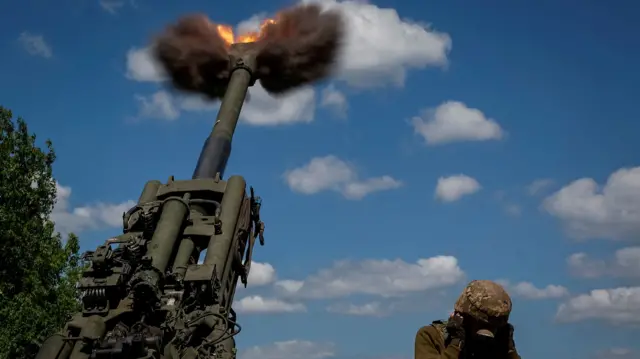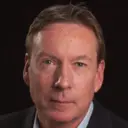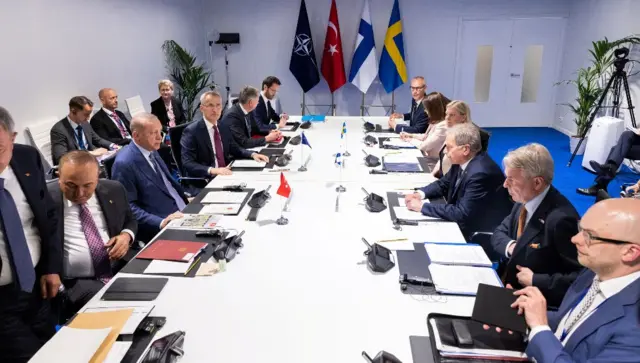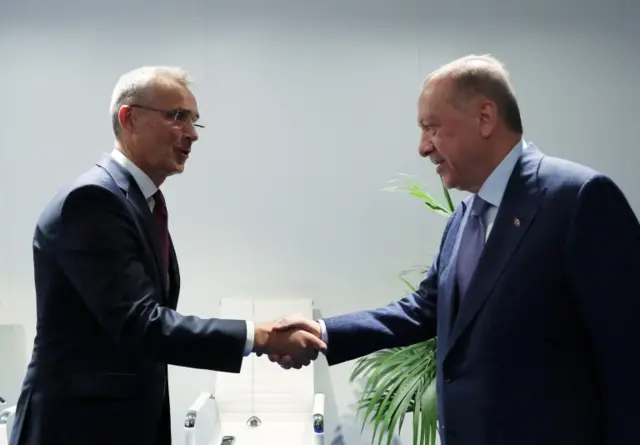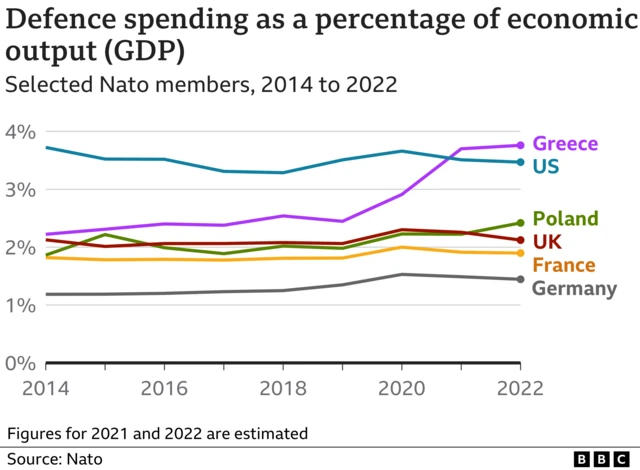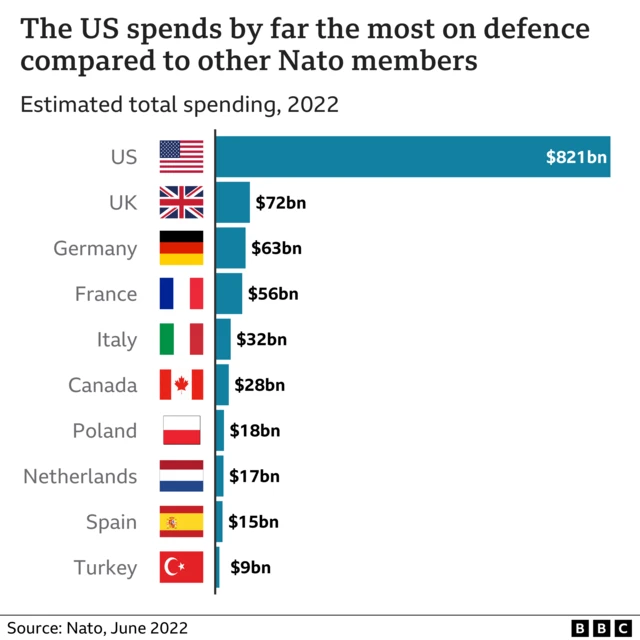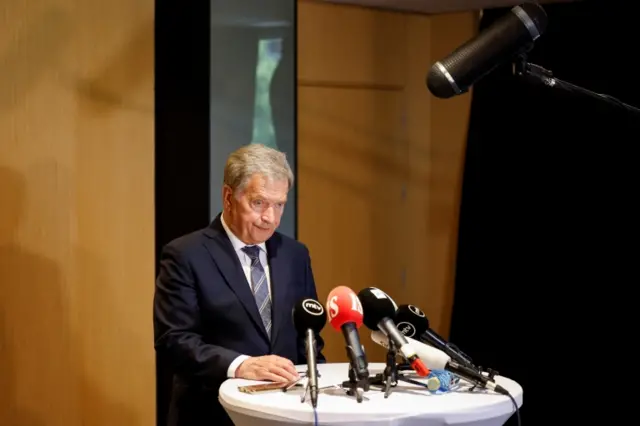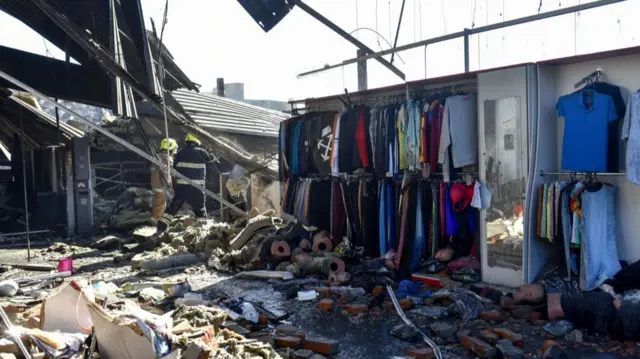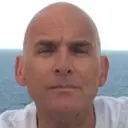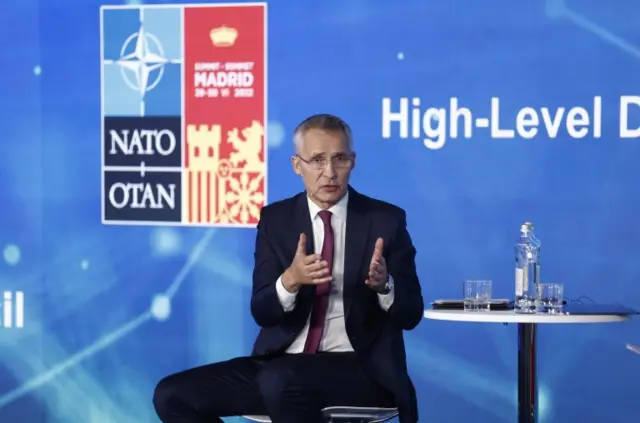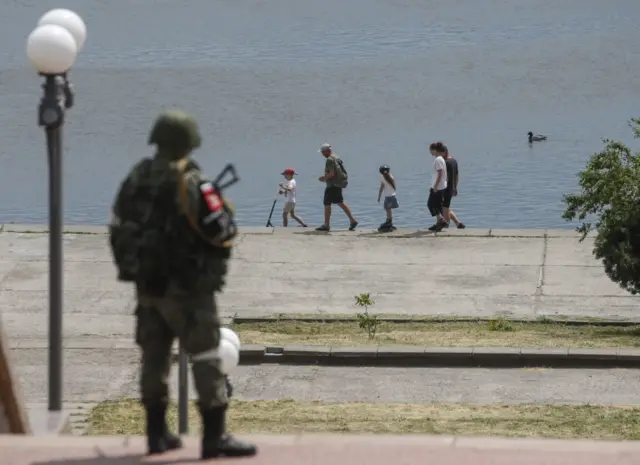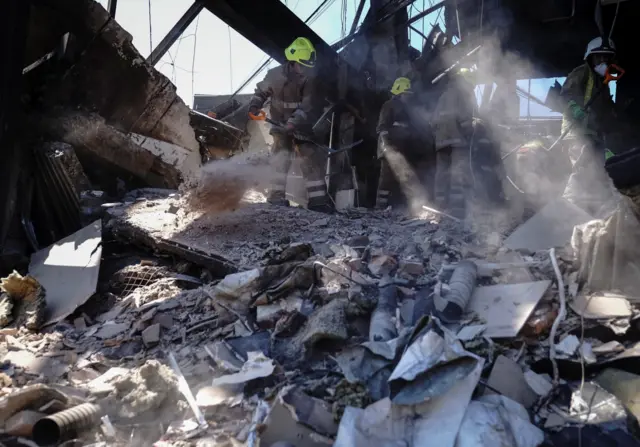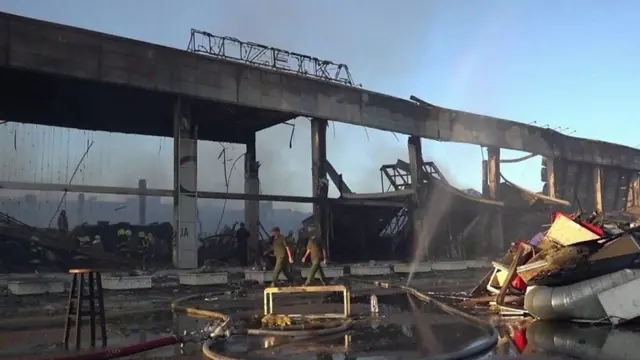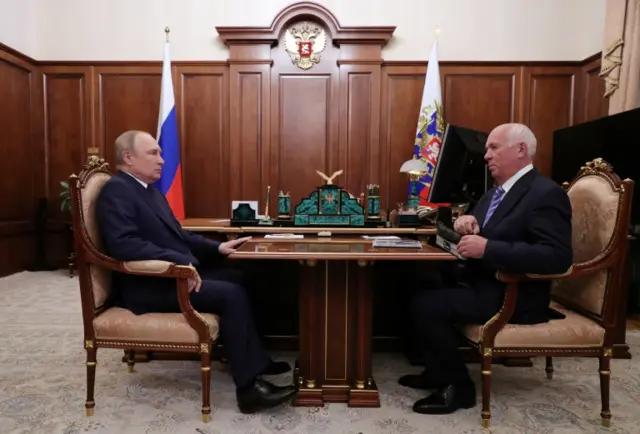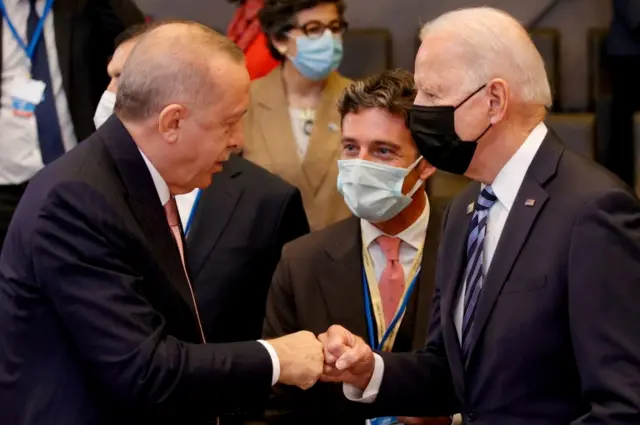Zelensky calls on UN to visit site of Ukraine mall strikepublished at 20:57 BST 28 June 2022
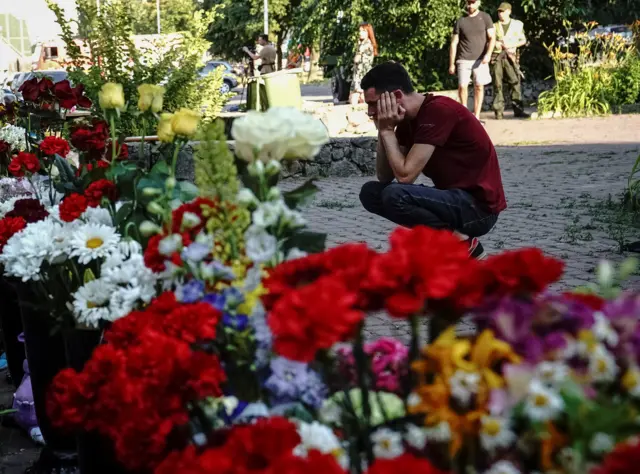 Image source, Reuters
Image source, ReutersA man views flowers to commemorate victims who died after a shopping centre was hit by a Russian missile strike in Kremenchuk
Ukraine's president has called on the United Nations to visit the site of a missile strike on a shopping centre in Kremenchuk, during an address at the UN Security Council.
Volodymyr Zelensky said: "I suggest the United Nations send either a special representative, or the secretary general of the United Nations, or a plenipotentiary commission to the site of this terrorist act".
He added it will enable the UN to "independently find out information and see that this indeed was a Russian missile strike."
At least 18 people were killed in yesterday's attack - dozens were injured and many are still missing, authorities have said.
